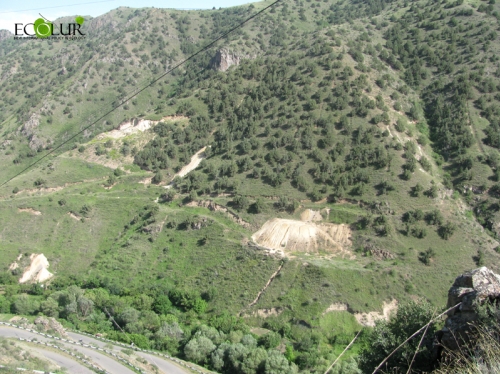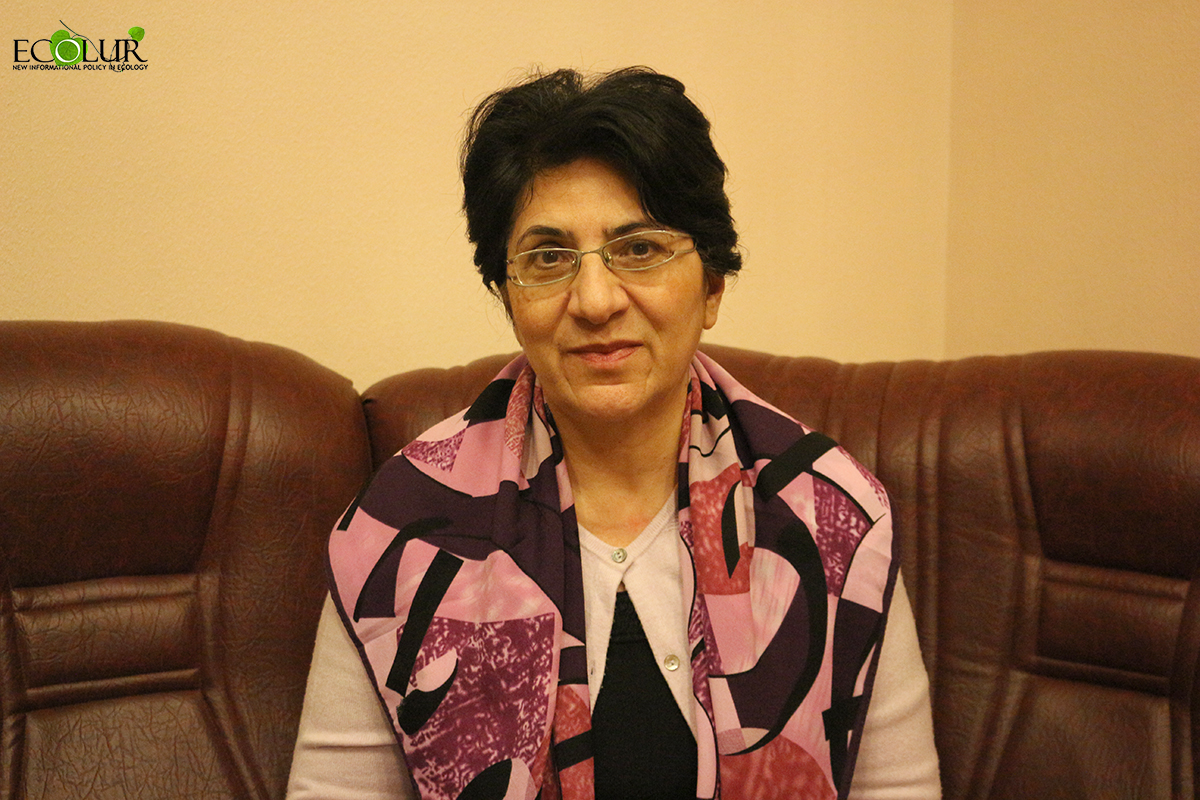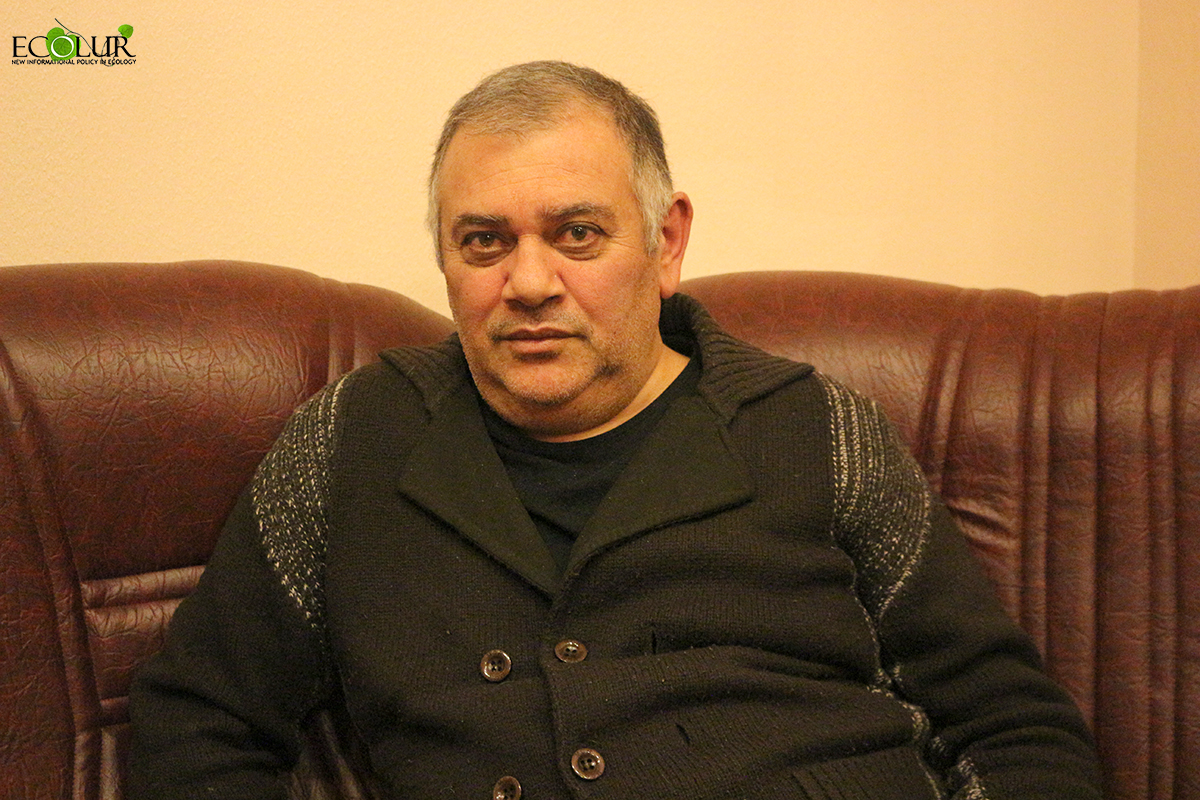

The processes around Azatek gold-polymetallic mining have intensified in Vayq. On May 24, 2021, by the decision of Vayq community council, about 50 hectares of Vayq community area was leased to "Vayq Gold" LLC for 3 years for geoprospecting in the area of Azatek gold-polymetallic mine.

Vayq
"Vayq Gold" LLC received permit for Azatek gold-polymetallic mining in Vayots Dzor Region for 2012-2037. Under the decree of RA Minister of Territorial Administration and Infrastructure 711-A dated on December 12, 2019, the company's soil management right was terminated. The company appealed the minister's decree in RA Administrative Court. The next hearing is scheduled for August 31, 2021.
Opinions are different in the affected communities over the development of Azatek mine. Local activists and residents boycotted several public hearings organized by Vayq Gold LLC. However, a public hearing was held in Azatek settlement after the war at the end of 2020 and the participants of the hearings gave their consent for the operation of the mine by a 2-vote majority.

Azatek residents
In his conversation with EcoLur, Vayq Deputy Community Head Vigen Gasparyan positively assessed the operation of the mine. "The mine will be developed in a closed manner. The gold mining and enrichment plant will be equipped with new technology. Cyanide will not be used, there will be no tails. We were promised that the damage to nature will be minimal," Vigen Gasparyan said. He noted that they demanded to have an agreement on how much money the company will invest in the community and what subsidy programs they will implement. One of the requirements is the use of local labor and equipment.

Vigen Gasparyan
According to the administrative representatives of Azatek and Por settlements, which are in difficult social conditions, in case of mining, the problem of jobs will be solved, the socio-economic situation of the villages will be improved. The administrative representative of Por settlement Lazr Yenokyan expects that the company will solve the problem of agricultural machinery, will provide varietal animals to the village. The administrative representative of Azatek settlement Sirak Hovsepyan mentioned that the company will be required to establish a fruit processing production in the village.

Lazr Yenokyan

Sirak Hovsepyan
It should be noted that Vayk Gold, under its soil management contract signed in 2012, undertook to allocate 3 million AMD annually to the affected community for the purchase of kindergarten supplies, school supplies and toys, participation in community socio-economic development programs, and repair of rural inter-community roads. When asked by EcoLur whether Azatek and Por settlements had received the money, the representatives of Por and Azatek answered in the negative. "No, no certain investment has been made for Azatek villagef. They paid the rent alone,” Azatek representative Sirak Hovsepyan said.

Azatek

Por
According to the reports published by Vayq Gold on the website of the Extractive Industries Transparency Initiative of Armenia, in 2018 the company transferred 10 million AMD to the enlarged Vayq community, which includes Azatek and Por, within the framework of socio-economic obligations, but Azatek and Por did not know about it.
Vayk Deputy Community Head Vigen Gasparyan noted that the company transferred 6 million AMD to Vayq community budget before the New Year, which was distributed to the families of the victims of the Artsakh-Azerbaijani war.
In her interview with EcoLur, Ruzan Ghazaryan, an active participant in the fight against the mining and the president of "Labour and Motherland" Regional Development NGO, said that the issue of the mining is viewed not as an environmental issue, but as a survival one. "The operation of this mine is a direct threat to our existence. Azatek gold mine is a combined polymetallic mine, uranium is included in the list of polymetals. "There is no guarantee that the mine will not harm us," she said. According to Ruzan Ghazaryan, this mining threatens the agriculture of the region.

Ruzan Ghazaryan
“The Arpa River flows under the mountain of the mine, irrigating the gardens of the villages of Vayots Dzor. Dust and turbidity will go to those orchards. The agricultural structure of Vayots Dzor may change, agriculture and winemaking will become meaningless. Has the potential benefit and loss from the mining industry been calculated?" she noted.
"They promise to develop in the closed manner. But the processing plant will be in the opposite village of Arin. This means that they have to take the ore from Azatek by truck through Vayq to Arin to dump the waste in the area of the historic city of Mos, where our military unit is located. Second, they will blow up underground. We live in an active seismic zone. Earthquakes are more likely to cause earthquakes,” the director of "Vayq" hotel Shirak Mikayelyan said.

Shirak Mikayelyan
Mariam Mkrtchyan, a resident of Vayq, a lawyer at "Yuses" law firm, mentioned the risks of Azatek mine development.
"The mine is located directly in front of Vayq, at a distance of about 50-100 meters. There may be some uranium radiation. It is not clear how people will solve health problems. I do not think that the social responsibility mentioned is enough to solve the problems of the community or to solve the health problems. Some work was done in the mine during the Soviet years. The ore was examined.
To this day, drainage water flows into the Arpa River, yellow water streams. Were those risks calculated? The Arpa River feeds the orchards of Arpi village, Areni. There is a risk management problem associated with its operation.”

Mariam Mkrtchyan

Arpa river
As an alternative to mining, the residents of Vayq, which is enlarged, offer to develop ecotourism, horticulture, beekeeping and cattle breeding, to create wool production and food markets.

This material has been prepared within “Liability of Non-operating Mining Companies in EITI Process” project impletmened by EcoLur with the USAID support within the frames of “Engaged Citizenry for Responsible Governance” project implemented by Transparency International Anticorruption Center.

This article is made possible by the generous support of the American People through the United States Agency for International Development (USAID). The contents of this article are the sole responsibility of the authors and do not necessarily reflect the views of USAID or the United States Government.
July 01, 2021 at 17:15
